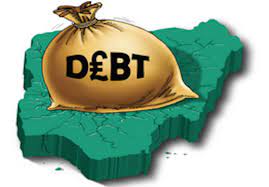Data from the Capital Importation Report for the third quarter of 2023 reveals that foreign loans accounted for approximately 78% of Nigeria’s capital importation, totaling $507.71 million. This comes as foreign capital inflow into Nigeria reached its lowest level in over a decade, amounting to $654.65 million in Q3 2023, according to the National Bureau of Statistics (NBS).
The analysis indicates that the value of foreign loans in Q3 2023 was 18% lower compared to the same quarter in the previous year and experienced a 34.19% decline relative to Q2 2023. This decrease is attributed to the current government’s strategy of favoring borrowing from domestic sources over foreign ones.
For the first time since 2007, there was a reduction of about $1.57 billion in Nigeria’s external debt in Q3 2023, primarily due to debt servicing activities, including redeeming a $500 million Eurobond and making a $413.86 million principal repayment from the $4.3 billion loan obtained from the International Monetary Fund (IMF).
Foreign Direct Investment (FDI) constituted only 0.091% of the total capital imported, falling short of 1%, despite the government’s efforts to attract investments. In Q3 2023, Nigeria attracted FDI worth $59.77 million, marking a decline of 26.86% compared to the same quarter in 2022. This indicates that current investment initiatives under the administration of Bola Tinubu have not yet produced significant near-term results.
With forex scarcity and low foreign exchange reserves, Nigeria has relied on foreign loans for FX, and despite promises of significant forex inflows and FDI pledges, the actual impact on the economy remains to be seen in future reports.










